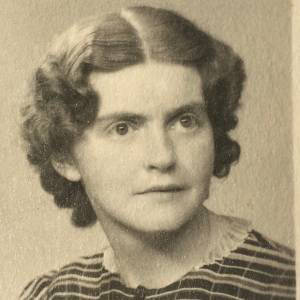December 31st 1940
December 31st (Tuesday)
The most curious feature of this diary are the gaps - as though when things are worst and most pressing to express, anything is practically impossible; and when things are better, the desire is less urgent. This is the last day of the most terrible, incredible year that anyone has been called upon to live since the world began. What glorious effrontery to be able to say that and mean it!
No nation on earth has ever stood up to what we have this year and survived as we have, and even managed to end up with a species of solemn optimism for 1941. Does it spring from a sure fore-knowledge of the future, or from a cheerful pessimism that - after all - it would be hard for things to be much worse? Whatever 1941 may have in store for us, it couldn’t find it easy to surpass what 1940 had for us, if we had known it.
So much of this diary, which was real and passionate at the time, now seems a little false and stilted. So much more has acquired a significance, unsuspected when the words were written.
Perhaps one shouldn’t write diaries, at least not the moralising kind, nor as a peg to hang a war on.
How did one feel at the time? Hardly at all; frequently one deliberately prevented oneself from thinking, or even allowing dread possibilities from taking the shape of thoughts.
The nightmare of the fall of France: how does it look now after six months? Perhaps worse than it did when it was happening because possibilities and dangers which were not apparent (because of the very horror of it) have been reached and passed.
A church clock is striking ten outside and there are two hours of 1940 left. I often listen to that clock in the night. It represents order, decency and sanity, and yet I wonder how long even it will last.
St Mark's[1], the church where I was confirmed, the little book shop where Joyce[2] and I made innumerable little purchases, are destroyed. Mrs Fisher’s house with the ridiculous bull’s head sticking out of the quite meaningless façade is burnt out. Craigmore[3] harbours soldiers.
London vanishes gradually. Now a slice is shorn away as on Sunday night, now inchmeal buildings are levelled and gaps torn in its ancient fabric. With each, something dies that was hallowed by generations of hope and endeavour, quiet monuments of ordinary strivings vanish into piles of rubble.
"And some there be which have no memorial, who are perished as though they had never been, and are become as though they had never been born, and their children after them” [4]. I think I understand rather better than I did what was meant by the seeming paradox “But these were merciful men, whose righteousness hath not been forgotten” [5].
[1] The Church of St Mark, Broomhill, Sheffield, was destroyed by an incendiary bomb on 12th December 1940. See https://en.wikipedia.org/wiki/Church_of_St_Mark,_Broomhill,_Sheffield
[2] See Joyce with Lorna in the photograph blipped on 11th January 2020: https://www.blipfoto.com/entry/2662588517674126981
[3] Lorna's paternal grandparents' house in Bristol. It is now part of Glenview nursing home - see https://glenviewbristol.co.uk
[4] Ecclesiasticus 44:9
[5] Ecclesiasticus 44:10
- 21
- 2
- Panasonic DMC-TZ80
- 1/125
- f/4.2
- 10mm
- 320

Comments
Sign in or get an account to comment.


